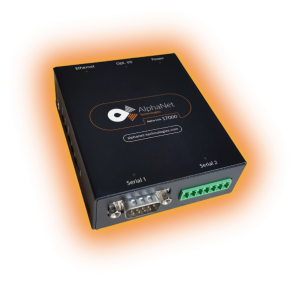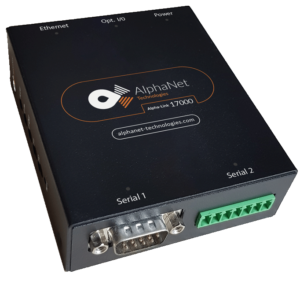A Modbus TCP gateway is a device that allows communication between Modbus TCP devices and other protocols or networks. Modbus is a widely used protocol in the industrial automation industry for connecting devices such as sensors, PLCs, and other controllers.
Modbus TCP is a variant of the Modbus protocol that operates over TCP/IP, the standard protocol used for communication over the internet and other networks. Modbus TCP allows devices to communicate over Ethernet networks, making it a popular choice for industrial automation applications.
A Modbus TCP gateway acts as an intermediary between the Modbus TCP devices and the other devices on the network. It translates the Modbus TCP messages into the appropriate protocol for the target device, and vice versa.
For example, suppose a Modbus TCP gateway is used to connect a Modbus TCP device, such as a temperature sensor, to a PLC that uses the PROFIBUS protocol. In that case, the Modbus TCP gateway would receive the Modbus TCP messages from the temperature sensor, translate them into PROFIBUS messages, and then send them to the PLC.
Similarly, when the PLC sends messages to the temperature sensor, the Modbus TCP gateway would translate them into Modbus TCP messages and send them to the sensor. This allows the two devices to communicate with each other seamlessly, even though they use different protocols.
Modbus TCP gateways can be used in a variety of industrial automation applications, such as building automation, oil and gas, manufacturing, and more. They are commonly used in situations where legacy devices need to be integrated with newer devices that use different protocols.
There are several types of Modbus TCP gateways available, depending on the specific needs of the application. Some Modbus TCP gateways support multiple protocols, allowing them to act as a gateway between Modbus TCP devices and devices that use different protocols.
Other Modbus TCP gateways may have additional features, such as data logging, that allow them to record and analyze data from the connected devices. This can be useful for monitoring and troubleshooting the system.
When selecting a Modbus TCP gateway, it is important to consider factors such as the number of devices that need to be connected, the protocols that are used, and the specific features required for the application.
The main advantage of a Modbus TCP gateway is that it allows for the integration of Modbus serial devices into modern Ethernet-based systems. This is important because Modbus RTU/ASCII devices were designed to communicate over serial communication interfaces, such as RS-232 or RS-485, which have limited range and require specialized cabling. Ethernet-based networks, on the other hand, have greater range and can support higher data rates, making them more suitable for modern industrial automation systems.
By using a Modbus TCP gateway, Modbus serial devices can be connected to an Ethernet network without requiring any changes to their existing hardware or software. The gateway acts as a translator between the Modbus serial protocol and the Modbus TCP/IP protocol, allowing devices on the Ethernet network to communicate with the Modbus serial devices. This means that existing Modbus RTU/ASCII devices can be integrated into Ethernet-based systems, providing greater flexibility and scalability for industrial automation systems.
Another advantage of a Modbus TCP gateway is that it can provide a higher level of security than Modbus serial communication. Modbus serial communication is an open protocol, which means that it does not provide any encryption or authentication mechanisms, making it vulnerable to attacks. Modbus TCP/IP, on the other hand, can use secure protocols such as SSL/TLS to provide encryption and authentication, ensuring that data is transmitted securely over the network.
Additionally, a Modbus TCP gateway can provide greater visibility and control over Modbus serial devices. By connecting Modbus serial devices to an Ethernet network, it becomes possible to monitor and control these devices from remote locations using a computer or SCADA system. This can provide greater flexibility and efficiency in industrial automation systems, as operators can monitor and control devices from a central location without having to physically access them.
Modbus TCP gateway provides several advantages over traditional Modbus serial communication. It allows for the integration of Modbus serial devices into Ethernet-based networks, provides a higher level of security, and enables remote monitoring and control of devices. These advantages make Modbus TCP gateways an essential component of modern industrial automation systems, providing greater flexibility, scalability, and efficiency.


